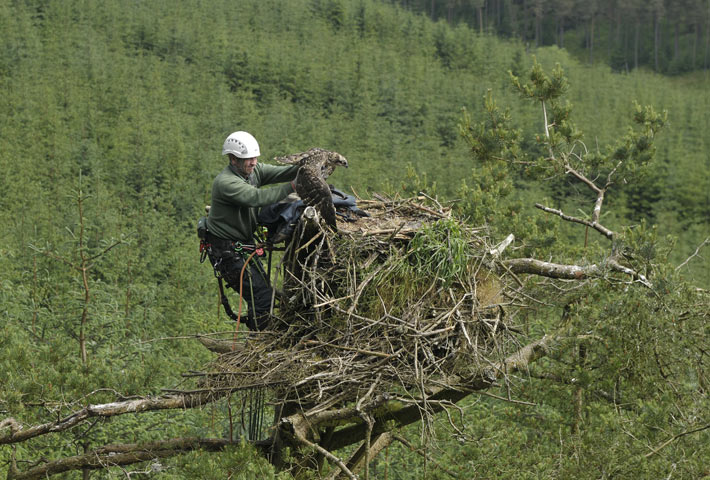TOP STORIES
Scientists worried by mass turtle death
Story courtesy of Australian Wildlife Health Network
Scientists have been unable to identify what has caused a mass death of green sea turtles at Upstart Bay south of Townsville in north Queensland. An aerial survey has found 70 turtles died this month.
..."The thing that's concerning for us is that we don't really know at this stage. The early tests haven't shown any obvious answers with what's happening with the turtles," he said.
"The live ones are obviously sick. They're disorientated, they tend to get washed up into the beach and are unable to get back into the water."
The green sea turtles are well nourished and almost all adult females.
ABC News - www.abc.news
30 Jun 2012
Location: Upstart Bay, Australia - Map It 

Vets suspect dolphin had a brain infection
A rare dolphin found dead on a Fowey beach could have had a brain infection, an initial post-mortem examination has revealed. The Cornish Guardian reported last week that two rare striped dolphins, more common to southerly regions such as the Mediterranean, were found stranded on Thursday, June 7.
The deaths sparked concern from British Divers Marine Life Rescue (BDMLR) and Cornwall Wildlife Trust's Marine Strandings Network (MSN) who feared a disease outbreak.
... Tooth marks indicated the stranded pair were also attacked by bottlenose dolphins.
An initial post-mortem examination has confirmed one was a juvenile female in poor body condition, which had not eaten recently. Confirmation of the brain infection is pending the outcome of further tests.
"We have had a number of cases of striped dolphins with this brain infection so it's likely to be the case here," said Rob Deaville, on behalf of AHVLA, in Truro, which carried out the examination.
"That's what we suspected," said BDMLR vet Darryl Thorpe. "Sometimes, if a disease affects the behaviour of the animal in the sea, that may cause it to strand because it knows it can't support itself in the water.
This is Cornwall - www.thisiscornwall.co.uk
29 Jun 2012
Location: Fowey, England - Map It 

Brucellosis moves outside borders of Wood Buffalo park
Provincial authorities have confirmed the first cases of brucellosis in wild wood bison outside Wood Buffalo National Park, raising some fears that if left unchecked the disease could spread to cattle on nearby farms.
Since the 1920s, the bison herd living within the park has been known to carry both brucellosis and bovine tuberculosis. But after taking tissue samples in two herds that roam along the edge of the park, officials have confirmed the disease has moved beyond the park’s gates.
Edmonton Journal - www.edmontonjournal.com
29 Jun 2012
C So
Location: Wood Buffalo National Park, Canada - Map It 

Wildlife officials assess impact of High Park fire on animals
Long-term benefits anticipated for mammals, but fish will suffer from water pollution
... amid the 87,250 acres charred in the Poudre, Rist, Redstone and Buckhorn Canyons, is the habitat homes of deer, elk, birds, squirrels, rabbits, bear and other wildlife.
Colorado Parks and Wildlife biologists expect some fatalities, particularly for smaller mammals that cannot run as fast and birds that are still in the nest, but do not know the extent of the deaths associated with the still-burning wildfire.
In the long run, however, these animals will benefit from the effects of the fire on their habitat. For fish, it is another story.
The long- and short-term effects of a wildfire pollute waterways, clog gills, reduce habitat and essentially kill fish.
Denver Post - www.denverpost.com
27 Jun 2012
P Dickman
Location: Colorado, USA
More on Colorado Wildfires
OTHER WILDLIFE HEALTH RELATED NEWS
Photo courtesy of The Guardian feature, Week in Wildlife- Dead Crow Found in Old South Tests Positive for West Nile [London, England - Map It
 ]
]

- This summer is critical for remaining 50 Durham bats [Pennsylvania, USA]
- Ind. drought affecting fish, wildlife populations [Indiana, USA]






No comments:
Post a Comment